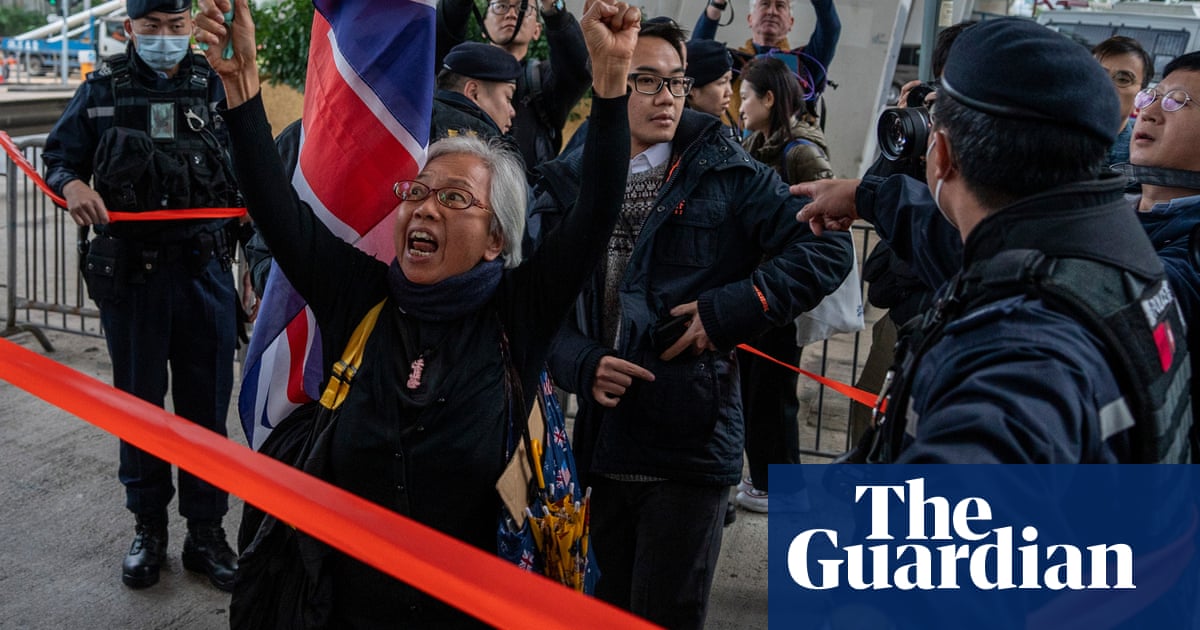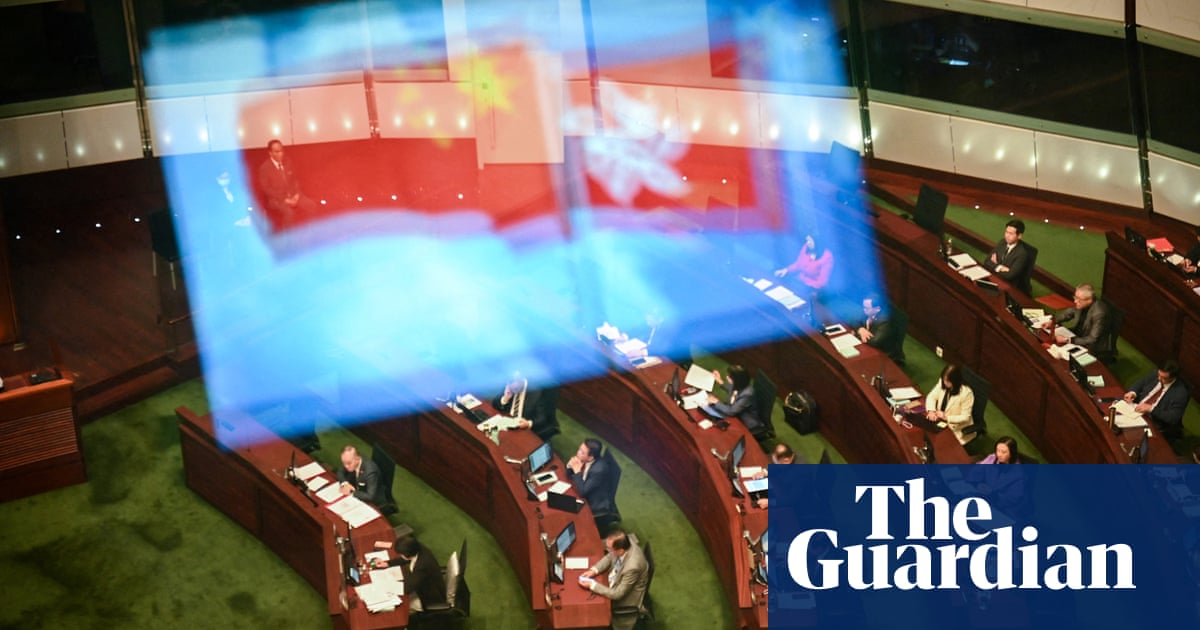
n the early morning of Monday 10 August, I was woken up by the incessant ding-ding of WhatsApp notifications. The messages from my colleagues were simple but overwhelming: the founder of our newspaper, Apple Daily, Jimmy Lai, as well as the company’s senior executives, had been arrested by the police on charges under the newly enacted national security law (NSL). My immediate thought was to wash and get dressed so that when the police knocked on my door, I would at least be in good shape to face them. In retrospect, I overreacted. The police did not knock on my or other editors’ doors. We were spared. Yet the danger of being arrested under the NSL is now clear and omnipresent.
We felt the danger first-hand when, later that day, approximately 200 police officers raided our newsroom. They failed to show their search warrant to our editor-in-chief before their raid and harassed our colleagues during the operation. They rounded up journalists and other staff and demanded that everyone hand over personal information, including residential addresses and phone numbers, before releasing them to return to work. When our editor sought to clarify the details of the raid, he was not only intimidated and shoved but almost got arrested for resisting police officers. Journalistic materials, supposedly protected by the warrant, were searched by some officers. Evidently, the raid exemplified the extensive power granted to Hong Kong police under the NSL, which leaves journalists and the news media powerless.
Unfortunately, granting unreasonably extensive power to the police is just a small part of the threat posed by the NSL to press freedom. The law itself is a bigger problem: as many legal experts in Hong Kong suggested, the national security law, imposed on Hong Kong by the National People’s Congress standing committee, has changed the ground rules of the city. It has introduced new offences that were alien to our system, such as undermining the authority of the central government, and collusion with foreign or external forces. These charges create ambiguities that undercut the freedom and rights that Hong Kong people used to enjoy.
After the law was passed, a lot of Hong Kong people rushed to delete their Facebook posts that might be perceived as criticising senior Beijing officials or central government policies. Some even expunged their Facebook accounts altogether. People also began to think twice before displaying any flags or chanting slogans in public places, as the police could easily determine such acts to be in violation of the NSL. Meeting foreign representatives has long been regarded as normal in a cosmopolitan city like Hong Kong, but such exchanges are now under great scrutiny. Some pro-Beijing figures and political parties have even labelled meetings with foreigners as possible collusion with external forces, now a criminal offence under the new law.
It is apparent that the NSL is making daily life uneasy for the general public. But for journalists working in independent news media, the law is simply a nightmare overshadowing every detail of their work. Doing daily assignments, conducting personal interviews, publishing op-eds, socialising with news sources: all these activities have turned into “traps” waiting for journalists to fall into. Attending background briefings by foreign officials or international NGOs could be equally problematic since no one is sure whether this could be seen as collusion. And articles discussing the possibility of Hong Kong or Taiwan’s independence are rendered out of bounds. When someone contributes an essay on mobilising the international community to aid Hong Kong in its fight to preserve its unique system, editors will have to think twice.
It’s now even difficult to write about our fellow Hongkongers. When reporters talk to Hong Kong activists-in-exile such as Nathan Law and write up a story about his plans and visions, the reports may be seen as promulgating subversive or pro-independence ideas punishable by the law. Just a few days ago, our public broadcaster, RTHK (modelled on the BBC), pulled an episode from its website about the postponed Legco election as Law was among those interviewed.
I suppose no one in any free society would like to see another raid on Apple Daily or any other newspapers. Most of those arrested on 10 August have now been released on bail. But the ugly scenes I witnessed that morning are likely to happen again.
Fung Wai-kong is the managing editor of the English edition of Apple Daily












